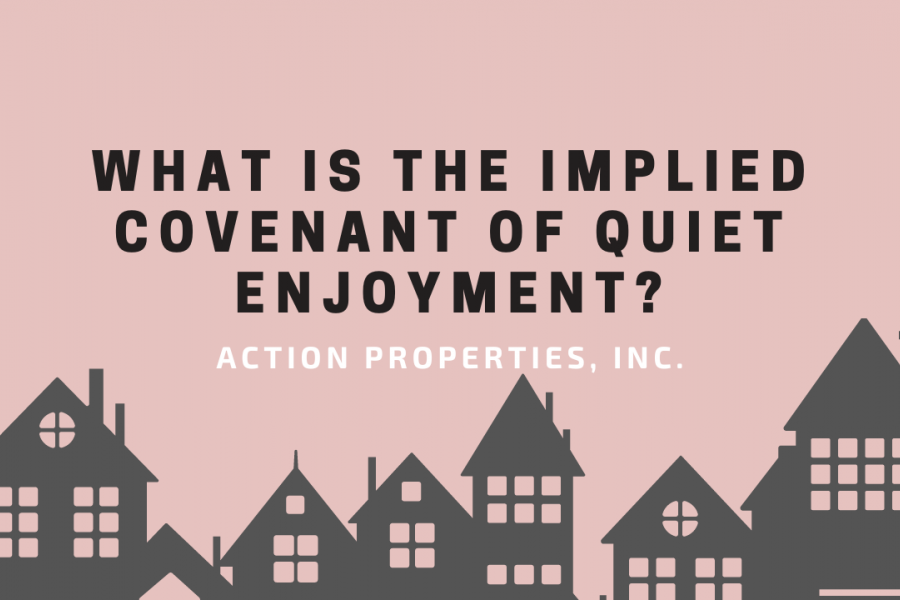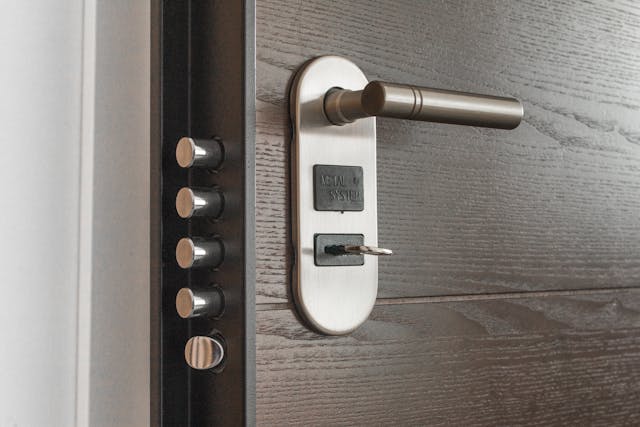
As a rental owner, you must have a solid understanding of landlord-tenant laws. Respecting local rental laws is essential to keeping a positive working relationship with your tenants, whether it's the Fair Housing Act or security deposit regulations.
Landlords need to be aware of a legal concept known as the "implied covenant of quiet enjoyment." One of your tenants' most fundamental rights is this. Breaching this covenant may have legal repercussions in addition to harming your relationship with your renters. In this article, we will go over everything you should know about the implied covenant of quiet enjoyment.
Defining the Implied Covenant of Quiet Enjoyment
The word "covenant" in law describes an unspoken or explicit commitment to carry out or abstain from a particular course of action. Therefore, even in cases where it isn't stated directly in a contract, the implied covenant of quiet enjoyment is present in the majority of residential and commercial lease agreements. It can certainly be difficult to define "quiet enjoyment."
To start with, no two covenant violations are the same. Moreover, one person's subjective definition of "quiet enjoyment" may differ from another's, which could lead to complaints.
The purpose of this implied covenant is to safeguard tenants' freedom to live in a quiet setting free from commotion or disruption from other tenants, the landlord, or even the neighbors. However, "quiet enjoyment" covers several rights, such as:
Freedom from Irrational Disruptions
Tenants are entitled to a quiet and peaceful place to live. This includes avoiding needless annoyances from their landlord, nearby residents, or other tenants.

Privacy Rights
Within their rented space, tenants are entitled to complete privacy. As a result, unless there is an emergency, landlords are not permitted to enter the property without giving prior notice.
Right to Prompt Maintenance and Repairs
It is legally required of landlords to keep their rental properties livable and safe. This entails promptly attending to maintenance issues and repairs.
Right to a Safe Atmosphere
Safe living conditions are a right of tenants. As a result, landlords are obligated to install fundamental security features in their rental properties, such as strong doors, and working locks.
Not Being Harassed
Renters are entitled to be free from harassment by other renters or their neighbors. Renters might be able to terminate their lease early if they are the targets of harassment.
What Constitutes a Breach of the Implied Covenant of Quiet Enjoyment?
The implied covenant of quiet enjoyment is violated by the following behaviors, which carry potentially severe consequences.
Unauthorized Entry
Landlords can only enter their occupied rental property to conduct repairs or inspections with the tenant's permission or by providing advance written notice (usually 24-48 hours). This notice requirement protects tenant privacy and possession by allowing time to prepare or not be disturbed.

Repeated entry without permission or notice breaches quiet enjoyment, as tenants expect freedom from unwanted intrusions that could disrupt their peace and security.
Neglect of Repairs
Timely repairs are required as properties naturally deteriorate. Plumbing, electrical, appliances, roofs, and windows must be addressed promptly as issues arise to avoid disrupting tenants' quiet enjoyment. Delayed maintenance negatively impacts tenants' use and quality of life, potentially breaching the covenant. Landlords should respond quickly to repair requests to meet legal duties and tenant satisfaction.
Nuisance
As the landlord, you must ensure tenants can peacefully reside in their home without unreasonable noise. You are responsible for promptly resolving noise complaints, such as:
- Loud music, parties or yelling between units
- Ongoing construction noise that is disruptive
- Barking dogs or pets that howl/cry excessively
- Noise from shared spaces that carries into units
Disruption of Essential Services
Tenants must have consistent access to utilities from landlords, such as heat, electricity, water and sometimes cable/internet. Deliberate disruptions or prolonged outages caused by landlord negligence or actions can breach quiet enjoyment.
This includes unexpectedly turning off utilities or failing to promptly fix them.
Landlords face legal risks for failing to provide essential services to tenants for extended periods. All utility outages require immediate fixing.
Constructive Eviction
Constructive eviction may apply if your actions or neglect render the property uninhabitable or unsafe. Should the problems worsen, your tenants may be asked to vacate, thus terminating the lease without incurring any fees.

Additionally, this may put you in danger of major legal issues.
Harassment or Retaliation
Harassment, threats, or retaliation for exercising legal rights violates quiet enjoyment. Courts see these as attempts to punish tenants for asserting their legal rights and denying them the quiet living conditions that the covenant guarantees.
When tenants exercise their rights, landlords are not allowed to take legal action against them.
Unaddressed Security Concerns
In order to maintain rental security, landlords must promptly fix any problems that jeopardize tenant safety, such as broken windows, doors, locks, or fences.
Ignoring security issues violates the covenant because it keeps renters from enjoying their home in peace and quiet without having to worry about possible threats from simple intruder access.
What Happens If I Breach the Implied Covenant of Quiet Enjoyment?
Tenants can take certain legal actions if their landlord breaks this important covenant:
Tenant Submits a Written Complaint
The tenant should first notify the landlord in writing of the issues and give them a reasonable opportunity to remedy the problem. This establishes an official record of the complaint.
You Respond to the Complaint
As the landlord, you must take the complaint seriously and make a good faith effort to investigate and address the tenant's concerns. Failure to adequately respond could strengthen the tenant's legal case against you.

Tenant Escalates the Issue
If the landlord does not resolve the issues, tenants can withhold rent, break their lease without penalty, or sue the landlord for damages from loss of use of the property. In some situations of severe breach, tenants may be able to receive punitive damages as well.
Courts take quiet enjoyment rights very seriously, and landlords can face legal and financial consequences for violating them.
Conclusion
As a landlord, it’s your responsibility to understand the implied covenant of quiet enjoyment. Understanding what this covenant entails will help you foster a better relationship with your renters and comply with local regulations.
Maintaining quiet enjoyment benefits both tenants and your company by avoiding unnecessary legal issues and ensuring tenants enjoy their living situations. Partnering with Action Properties Inc.'s experienced team can offer guidance to keep your investment protected from liabilities.
Disclaimer: This blog should not be used as a substitute for legal advice from a licensed attorney in your state. Laws change, and this post might not be updated at the time of your reading. Please contact us for any questions you have in regards to this content or any other aspect of your property management needs.